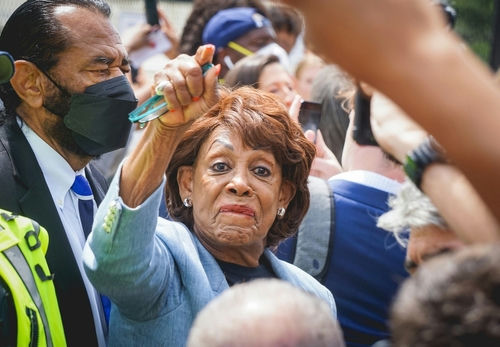Maxine Waters’ historical correspondence with Fidel Castro has resurfaced, stirring controversy and debate.
Maxine Waters and the Castro Connection
Recently, Congresswoman Maxine Waters found herself at the center of controversy after old letters she wrote to Fidel Castro resurfaced. These letters, expressing admiration and support for the Cuban leader, have sparked significant debate. Some critics argue that these correspondences reveal a troubling side of Waters’ political affiliations and question her past judgment. The emergence of these letters has reignited discussions about the influence of Castro on American political figures and their historical interactions.
Supporters of Waters argue that these letters must be viewed within the historical context of their time. The 1990s were a period of complex international relations, and many American politicians engaged with foreign leaders in ways that might seem controversial today. Waters’ admirers insist that her actions were part of broader efforts to foster dialogue and understanding between nations. However, opponents see this as an attempt to downplay the gravity of her affiliations.
.@RepMariaSalazar: "Madame Waters, for decades you traveled to Cuba dozens of times to visit Fidel Castro personally whom you considered your friend…@RepMaxineWaters: "I rise to take down her words." pic.twitter.com/ldV3U4nLLs
— CSPAN (@cspan) November 21, 2025
Political Repercussions and Public Reactions
The revelation of these letters has led to a polarized public reaction, with some calling for accountability and others defending Waters’ past actions. This incident highlights the ongoing challenges faced by public figures when past actions and statements are scrutinized in today’s politically charged climate. The controversy underscores the importance of transparency and consistency in political careers, as historical actions can resurface and impact current perceptions.
The political landscape today is drastically different from the era when Waters penned those letters. The renewed focus on her past affiliations with Castro invites a broader discussion on the enduring influence of historical figures on contemporary politics. It also raises questions about the criteria by which political leaders are judged and the extent to which past associations should affect their present standing.
A MUST WATCH!!! 👇🏻👇🏻👇🏻 Florida Rep. Maria Elvira Salazar calls out Maxine Waters to her face for her friendship with Fidel Castro!!! 🔥🔥🔥 pic.twitter.com/C5wOcgdzWK
— MarLa With a La (@marlawithala_la) November 23, 2025
The Broader Impact on International Relations
The resurfacing of Waters’ letters to Castro revives interest in the broader impact of international relations during that period. Fidel Castro’s influence extended beyond Cuba, affecting global politics and shaping the views of many political figures in the United States. This incident invites a deeper examination of how past international relationships continue to influence current political dynamics and public opinions.
Political analysts suggest that these discussions could lead to a reevaluation of historical narratives surrounding American-Cuban relations. The controversy surrounding Waters serves as a reminder of the complexities involved in diplomatic interactions and the lasting effects they can have on political careers.

